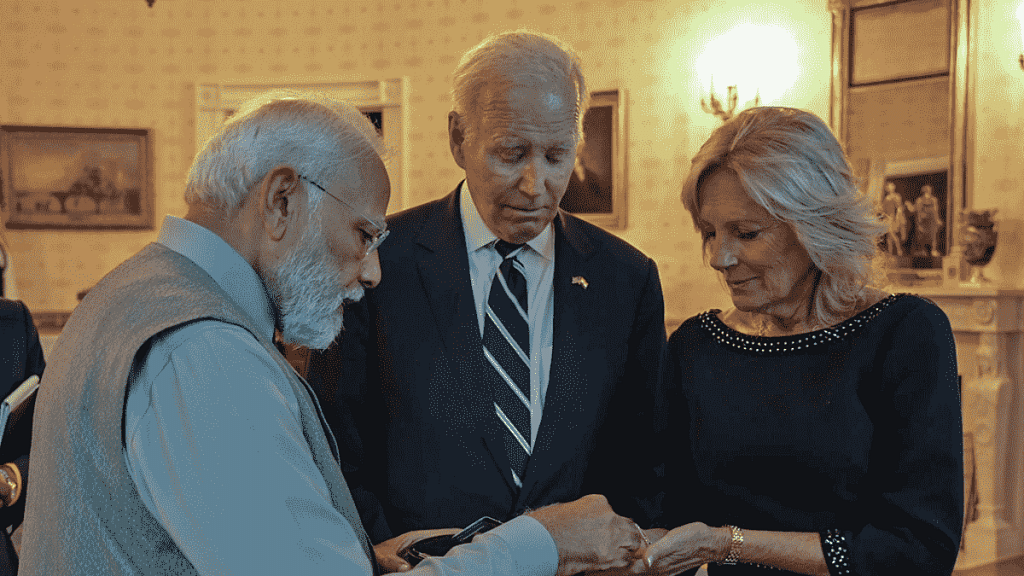New Delhi: Prime Minister Narendra Modi is on a much-publicised first ‘official state visit’ to the United States, but a survey conducted by Washington D.C-based think-tank Pew Research Centre shows that a sizeable portion of the American population hasn’t heard of him.
Released 21 June, the ‘Spring 2023 Global Attitudes Survey’ found that 40 percent of Americans had never heard of Modi — the most for any leader on the survey. Further, 35 percent said the same of German Chancellor Olaf Scholz — the second on the list, followed by 26 percent for Israeli Prime Minister Benjamin Netanyahu and 24 percent for French President Emmanuel Macron.
Russian President Vladimir Putin (3 percent) followed by Ukrainian President Volodymyr Zelensky (10 percent) and Chinese President Xi Jinping (13 percent) are in the lower half of the survey findings, meaning that the trio was most heard of in America.
The results were based on an analysis of 3,576 American adults who were surveyed from 20 to 26 March.
Younger Americans (those under 30) are more likely to have never heard of Modi, with the survey putting this section at 59 percent.
A significant portion of those who had heard of the Indian prime minister, however, tend to lack confidence in him — the survey shows that 37 percent of the people surveyed showed “little or no confidence” in his capacity to do the right thing in international affairs as compared to the 21 percent who did.
Two percent of the respondents said they didn’t know or refused to answer, according to the survey.
PM Modi embarked on his first official state visit on 20 June. While the central events of the visit — including talks with American President Joe Biden, a state dinner at the White House and an address to the US Congress — began Wednesday, Modi attended an International Yoga Day event at the UN headquarters in New York a day before.
Also Read: Modi & Manmohan only Indian PMs to go on ‘official state visit’ to US. Here’s what that means
India’s global influence ‘unchanged’, say Americans
According to the survey, Americans over 65 were more likely to have heard of Modi, with only 28 percent in this age group saying they had never heard of the Indian prime minister. Adults with lower levels of education are more likely to say this.
Despite the views of the Indian prime minister, over half of American adults (51 percent) held India in favourable light, the survey found. Moreover, people with higher education were more likely to hold this view.
Politically, it was Democrats and Democrats-leaning independents who were more likely to see India in a better light — according to the survey, 55 percent democrats saw India favourably against 48 percent Republicans.
The survey, however, showed that a significant proportion of Americans (64 percent) believed that India’s global influence has remained unchanged in the last few years. By comparison, 23 percent believe that its influence has grown and 11 percent believe it’s diminished.
Men are more likely than women to see India’s influence growing, although the research says they were also more likely to have answered the question. Moreover, Americans with a college degree and those who followed international news were more likely to have answered the question affirmatively, the research shows.
(Edited by Uttara Ramaswamy)
Also Read: In America, India is now bipartisan. Amrit Kaal is here
